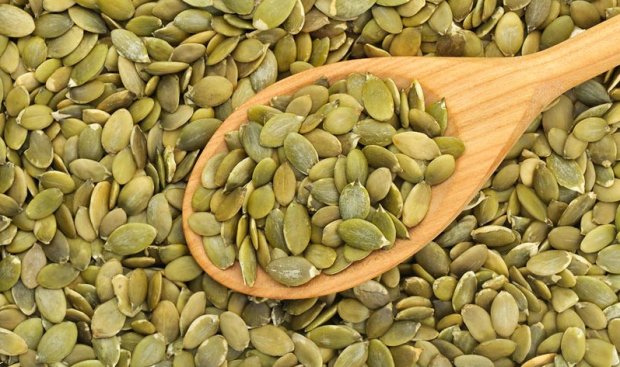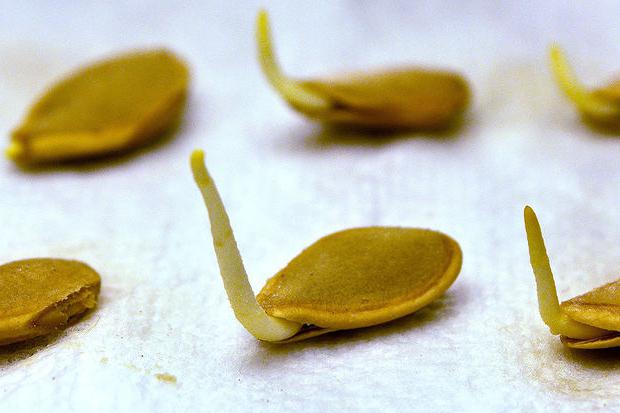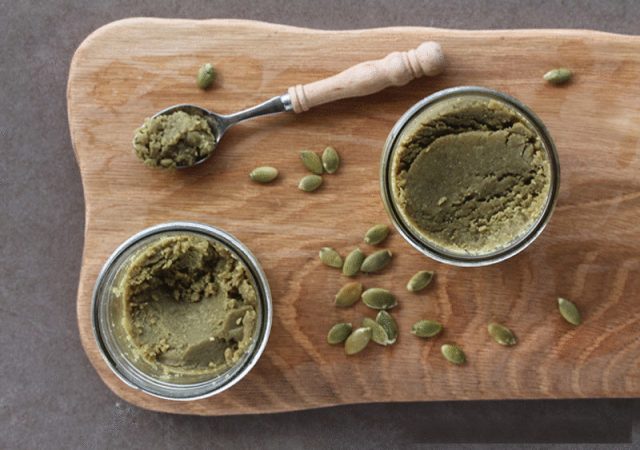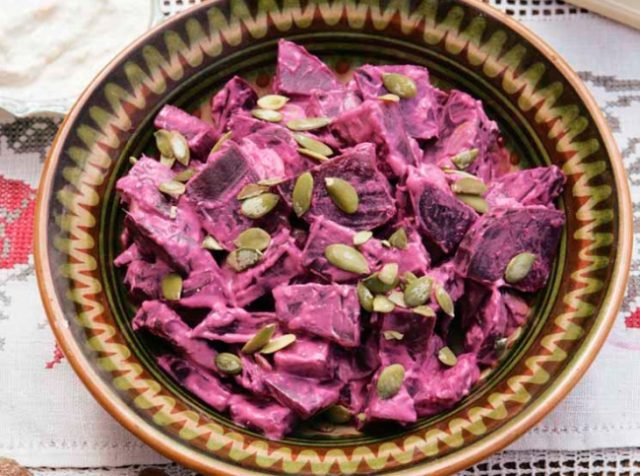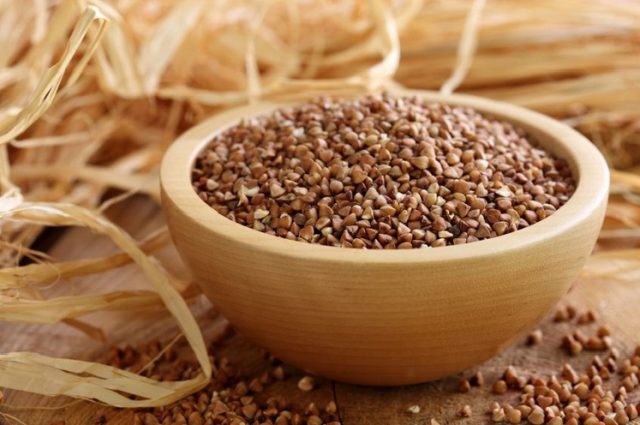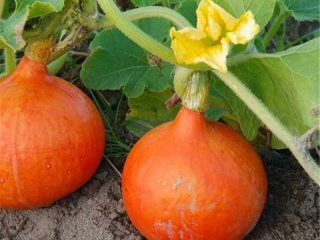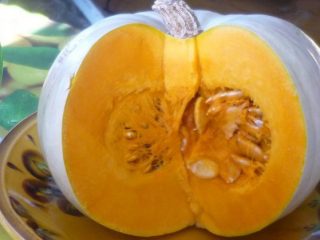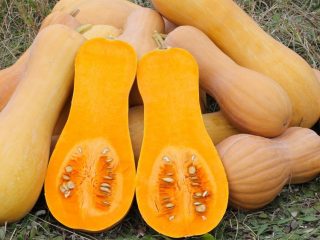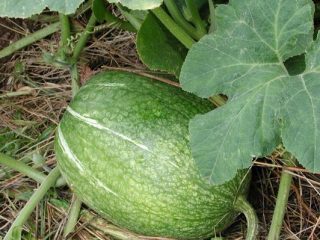Content
Pumpkin seeds for type 2 diabetes are not only an excellent flavor supplement, but also a source of important nutrients. They strengthen and heal the patient’s body, helping to avoid many health complications associated with this disease.
Glycemic index of pumpkin seeds
With type 2 diabetes, patients have to selectively approach food products. Firstly, the diet should be low in calories. Type 2 diabetes mellitus in most cases is accompanied by obesity, which significantly worsens the patient’s condition and significantly reduces his chances of recovery.
Calorie content, kcal | 540 |
Proteins, g | 25,0 |
Fats, g of which polyunsaturated, g | 46,0 19,0 |
Carbohydrates, g | 14,0 |
Water, g | 7,0 |
Dietary fiber, g | 4,0 |
Mono- and disaccharides, g | 1,0 |
Saturated fatty acids, g | 8,7 |
Glycemic index, units | 25 |
In addition, when choosing food products, patients with type 2 diabetes are guided by such an indicator as the GI (glycemic index).The lower this indicator, the less the product affects blood sugar levels, that is, it is safer for the patient. Therefore, the menu of patients with type 2 diabetes should contain mainly foods with low and medium GI.
Can you eat pumpkin seeds if you have type 2 diabetes?
Diet plays an important role in the life and health of a diabetic. In the initial phases of type 2 diabetes mellitus, with just the right selection of foods, you can bring your condition back to normal. The basic principle of a diabetic diet is to minimize the amount of carbohydrates in the daily menu. It is this substance that, as a result of a series of chemical reactions in the body, turns into glucose, puts a strain on the pancreas and causes spikes in blood sugar.
As can be seen from the table, the glycemic index of pumpkin seeds is only 25 units. This means that pumpkin seeds contain complex carbohydrates that take a long time to digest and do not cause sharp and sudden changes in glucose levels. In addition, they contain a significant amount of fiber, which further slows down the process of absorption of sugars. Although in limited quantities, pumpkin seeds can be eaten if you have diabetes, although they are high in fat and calories.
What are the benefits of pumpkin seeds for diabetes?
A set of biologically active substances contained in pumpkin seeds significantly alleviates the condition of patients with type 2 diabetes.
Chemical composition:
- vitamins (B1, B4, B5, B9, E, PP);
- trace elements (K, Mg, P, Fe, Mn, Cu, Se, Zn);
- essential amino acids (arginine, valine, histidine, isoleucine, leucine, lysine, others);
- omega-3 and -6 acids;
- phytosterols;
- flavonoids.
As you know, type 2 diabetes is scary mainly because of its complications. First of all, the cardiovascular system suffers. By eating pumpkin seeds, you can avoid this. Magnesium helps the cardiovascular system function normally, helps relax blood vessels and lower blood pressure, prevents stroke and heart attack, and protects against the development of atherosclerosis.
Zinc has healing properties, maintains hormonal balance, and also strengthens the immune system. This is very important for patients with type 2 diabetes, who become very vulnerable to infections and viruses. In addition, the disease can cause serious complications in the functioning of the kidneys, heart, visual organs, as well as the condition of the skin, teeth and gums. By increasing the body's defenses, all this can be avoided in type 2 diabetes.
Pumpkin seeds contain no less phosphorus than any type of fish. This element promotes the functioning of the kidneys, with its help the absorption of most vitamins occurs, and it participates in most chemical reactions occurring in the body. Strengthens teeth, bones, affects muscle and mental activity.
Manganese creates effective protection for the body, strengthening the immune system. Increases the rate of insulin and fat metabolism, controls the functioning of the entire gastrointestinal tract. Prevents the development of tumor processes and also acts as an antioxidant, slowing down the aging of the body. improves the absorption of iron, B-group vitamins, especially B1.
Sprouted pumpkin seeds
Pumpkin seeds with type 2 diabetes increase their biological activity during germination. As a result of this process, the substances acquire a more easily digestible form:
- proteins are converted into amino acids faster;
- fats – into fatty acids;
- carbohydrates - into simple sugars.
As a result of germination, the concentration of vitamins (10 times), micro- and macroelements increases. Frequent consumption of such seeds is of great importance for a person suffering from type 2 diabetes:
- the deficiency of elements important for life is replenished;
- the condition of the body’s internal systems improves (genitourinary, digestive, nervous, biliary, cardiovascular, immune);
- normalization of all types of metabolism;
- improvement of hematopoiesis, insulin synthesis;
- cleansing the body;
- prevention of inflammatory, oncological, allergic diseases.
All these properties make it possible to use sprouted seeds for the treatment of diseases of the genitourinary system, both male and female, as well as liver pathologies, disorders of the digestive tract, heart disease, vascular disease, anemia, and acne.
The introduction of sprouted pumpkin seeds into the diet is necessary for people suffering from type 2 diabetes mellitus, obesity, as well as those who regularly devote time to sports and experience emotional stress and stress.
Sprouted seeds are useful for gestational diabetes, strengthen the body, maintain normal blood sugar, and are also useful for all pregnant and lactating women. They heal the child’s body, develop intelligence and memory, help overcome stress associated with the educational process, and have a positive effect on growth and puberty.
Admission rules
The recommended daily dose of pumpkin seeds for adults is 100 g, for children – 2 times less. It is advisable to divide the specified amount into several doses, for example, eat a little before breakfast, lunch and dinner, half an hour to an hour before meals.
Pumpkin seeds for diabetes 2 are best consumed slightly dried, without salt, raw. You can often find roasted salted seeds on sale. Such a product will not be useful even for healthy people, not to mention those with type 2 diabetes. It is advisable to purchase seeds in a shell, which protects them from bacteria, pollution and fat oxidation, which begins under the influence of light and oxygen.
Application of germinated seeds
After germination, seeds are stored for no more than 2 days in the refrigerator. Therefore, it is advisable to use them immediately. The daily portion should be 50-100 g. It is advisable to consume this extremely healthy product in the morning, before breakfast or instead of it.
Sprouted seeds are good to use with many products:
- muesli;
- honey;
- nuts;
- fruits;
- vegetables.
Crushed seeds are good to add to salads, cereals, soups, dairy products, and baked goods.
Recipes for diabetics with pumpkin seeds
Pumpkin seeds go well with many foods, enriching their taste and nutritional composition. By adding seeds to food, you can get a lasting therapeutic effect and forget about health problems for a long time.
Recipe 1
The easiest way to make something with pumpkin seeds is to make a smoothie. Cooking options can be very different. Here you can show all your imagination, taking into account the compatibility of products and their benefits or harm for patients with diabetes. Here are some of them:
- pumpkin seeds powder (3-4 tsp) + honey (sweetener) + drinking water or milk (200 ml);
- strawberries (glass) + seeds (2 tsp) + black salt (pinch);
- seeds + oatmeal (soaked) + milk + sweetener;
- tomatoes + seeds + cottage cheese + spices.
Seeds can be added to almost any cocktail, making it richer and healthier. Combine the ingredients of each recipe in a blender bowl, beat and the drink is ready.
Recipe 2
Pumpkin seeds are good to add to various salads. They can be added whole, crushed a little, or even ground into powder - in this form they will resemble a seasoning.
Ingredients:
- peas (green) – 0.4 kg;
- mint (fresh) – 50 g;
- dates – 5 pcs.;
- lemon – 1 pc.;
- lettuce (Roman) – 1 bunch;
- seeds – 3 tbsp. l.
First you need to prepare the mint sauce. Place dates, lemon zest, mint leaves in a blender bowl, add the juice of half the citrus. Beat everything until it becomes liquid sour cream, adding a little water. Tear the salad and place on plates. Mix peas with seeds and season with sauce, place on green leaves.
Recipe 3
Another salad option using pumpkin seeds.
Ingredients:
- beets (boiled) – 0.6 kg;
- seeds – 50 g;
- sour cream – 150 g;
- horseradish - 2 tbsp. l.;
- cinnamon (ground) – 1 tsp;
- salt.
Cut the beets into cubes and mix with the seeds. Prepare a sauce from sour cream, cinnamon, salt and horseradish. Dress the salad.
Recipe 4
You can prepare buckwheat porridge with pumpkin seeds.
Ingredients:
- cereal (buckwheat) – 0.3 kg;
- seeds – 4-5 tbsp. l.;
- vegetable oil);
- salt.
Pour hot water (1:2) over the cereal and add salt. Bring to a boil and cook covered for ¼ hour. Add the seeds and cover with a lid so that the products become friends. When serving, season with oil.
Recipe 5
You can prepare raw food porridge with pumpkin seeds.
Ingredients:
- pumpkin seeds - 2 tbsp. l.;
- flax seed – 2 tbsp. l.;
- sunflower seeds – 1 tbsp. l.;
- banana – 1 pc.;
- dates – 3 pcs.;
- raisin;
- water;
- coconut flakes.
Grind all the seeds in a coffee grinder, mix them together and leave for half an hour. Add banana to the ground mixture and mash it with a fork. Add raisins and dates, mix everything. To make the dish more appetizing, sprinkle coconut flakes on top.
Restrictions and contraindications
Despite the benefits of pumpkin seeds for type 2 diabetes, there are a number of limitations. They are not recommended for consumption by people who have ulcerative lesions of the gastrointestinal tract (stomach, duodenum), as well as gastritis, colitis. The high calorie content of seeds makes them an undesirable product in the diet of people who are overweight.
Conclusion
Pumpkin seeds can be beneficial for diabetes if used in small quantities. They will saturate the body with nutrients, have a healing effect, rejuvenate and give health and vitality.

